
A large (> 3.5 million game) Scid/ChessDB format database has been placed on the web, conveniently split up into 57 parts for easy downloading. ChessDB handles all the downloads and reconstruction of the files, so you can very easily get a data database of games played by mostly strong players - the average Elo is 2233.
In addition to the database of 3.5 million games, there is a smaller database of 100,000 games. The 100,000 game database contains only games where both players are rated 2290 or above. The average Elo is 2602. The 100,000 game database is a subset of the 3.5 million game database, so there is no point downloading both.
ChessDB now supports the use of UCI engines, which are used more on commerical chess engines than the original Winboard interface supported by Scid. This means engines such as Fritz and Rybka can now be used.
ChessDB 3.16.19-beta-1 and later support the statistical analysis of chess moves in an attempt to determine if one move has been more successful in tournament play than another. The basic Tree Window in Scid showed the frequency of moves and the scores. But if one move scored higher than another, there was no way to tell if this was likely to be due to chance, or whether the data indicated that this was unlikely to be due to chance, and so there is likely to be an underlying reason one move scores better than another.
In a database of 628,370 downloaded from TWIC, the very odd move 1.Na3 scored far better than any other move, with a score of 80%, which is much higher than 1.e4 (53.4%). But statistical testing shows there is a high probability that this is due to chance alone. It was only played 4 times in the 628,370 games. In the revised tree window shown below, we see ChessDB indicates the probability the difference in score (or any larger score difference) between any two moves is due to chance.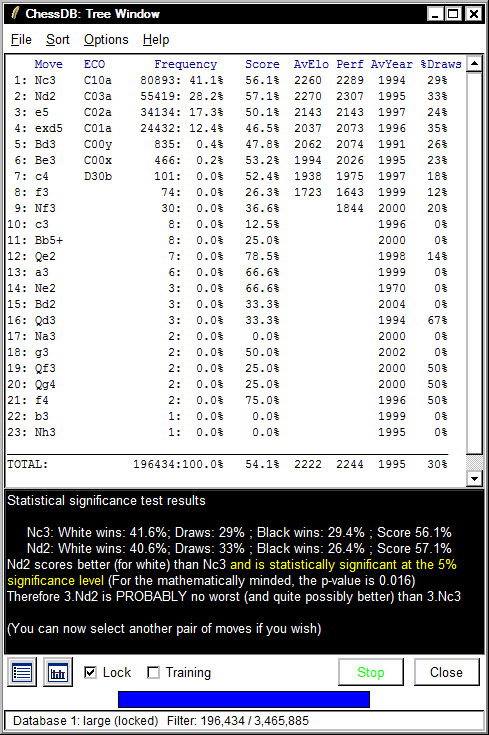
It is possible to download games in the history of anyone on the
Internet Chess Club (ICC)
to a database. First, you must configure ChessDB to use an ICC server, with your username and password.

Then enter a list of usernames from where you want the games downloaded. The PGN representation of the game is displayed on the screen and the games imported directly into the database.
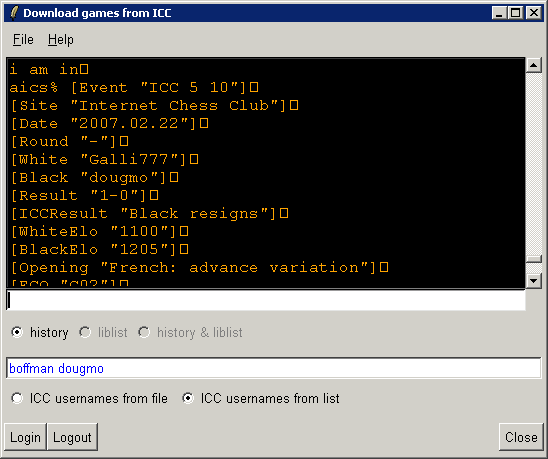
It is very useful to find games played by opponents you might meet in a competition, as you can find out the openings they play and find their weaknesses and strengths. Free Internet Chess Server (FICS), but
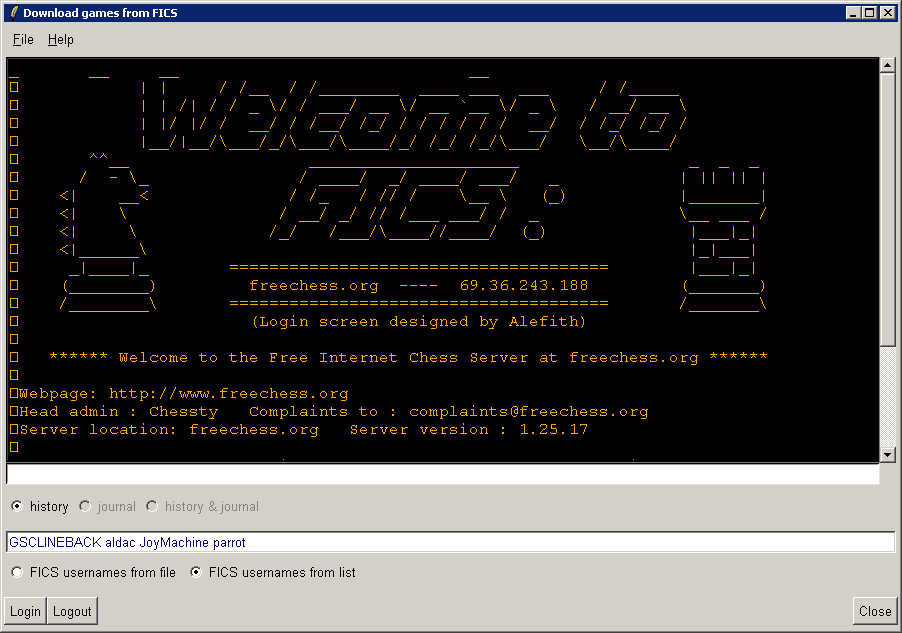
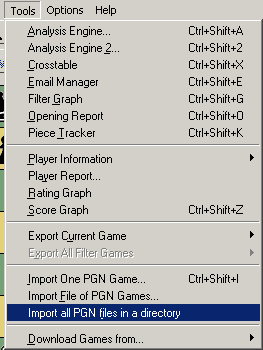
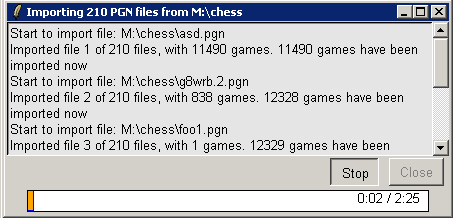
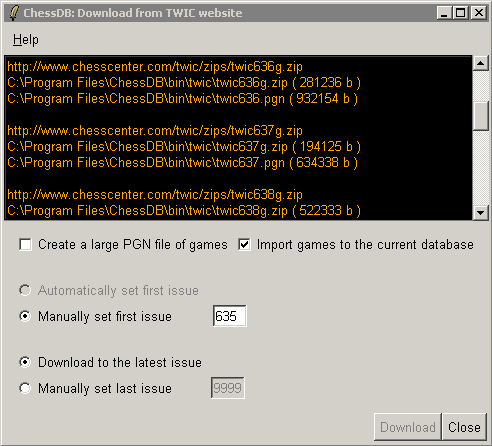
ChessDB can estimate what should be the latest issue available, and will indicate if there is a problem.
 No such functionality existed in Scid.
No such functionality existed in Scid.

The last of these options had the problem that Scid would annotate a very large percentage of moves, which often was not what was wanted. ChessDB now has the further option of:
This allows only significant annotations to be made. Those where the difference in quality of the moves is small, will not be annotated. Obvious blunders are annotated with '??' and poor moves with '?'. The definition of obvious blunder and poor move can be changed.